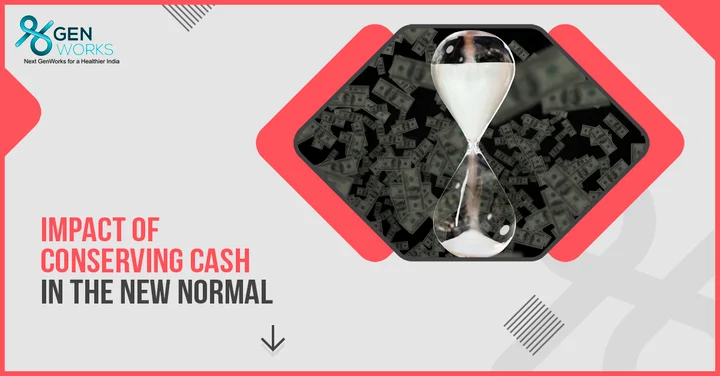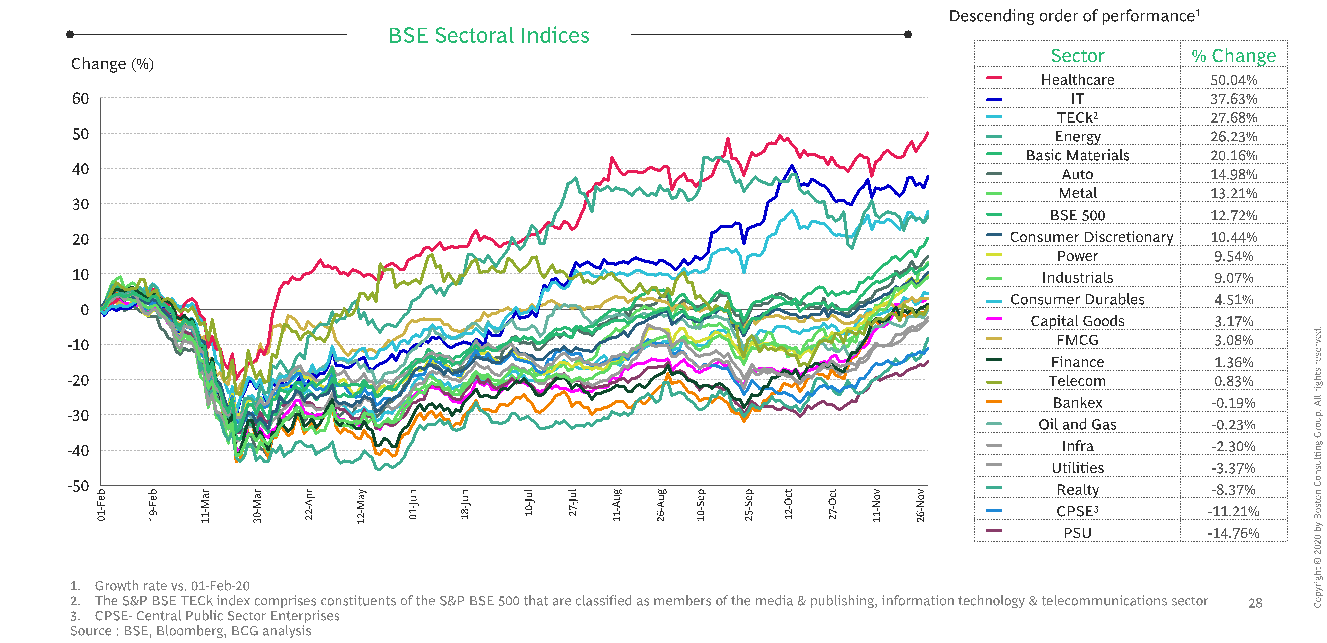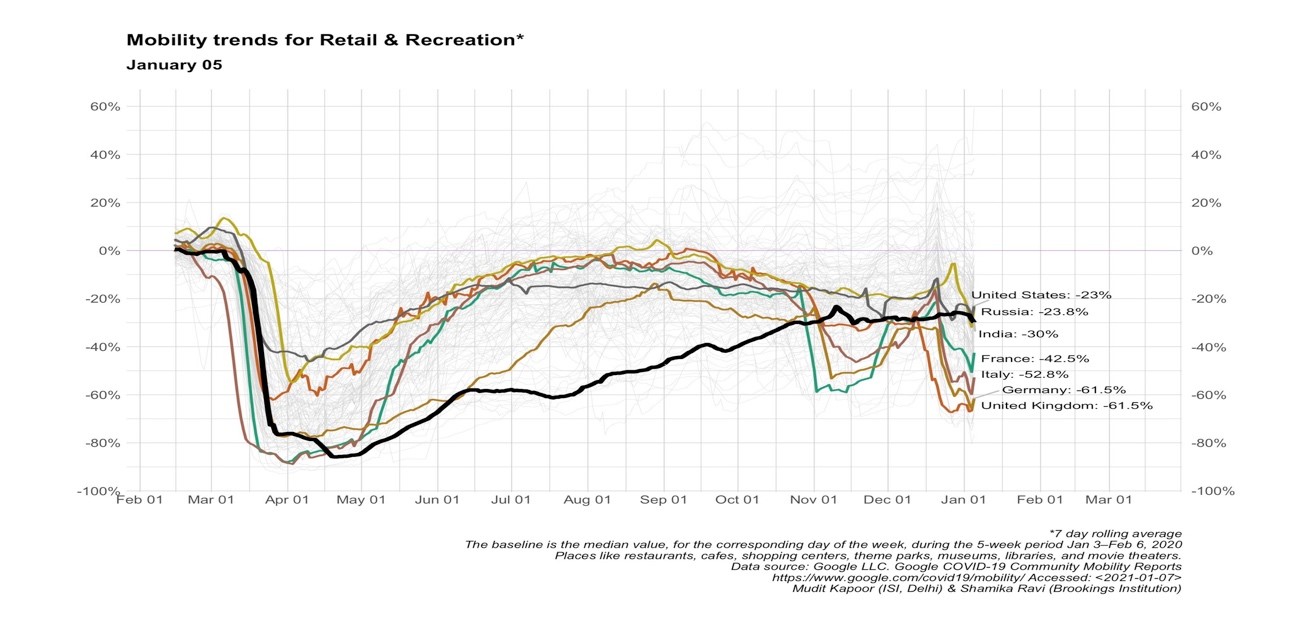Impact of conserving cash in the new normal

The year 2020 has been for the domino effect, where one mega event - the Covid19 pandemic has set off a chain reaction of events and has created seismic shifts across geopolitics, economies, industry realities. We have not seen massive events in recent memory in such a short span.
Some of them are – Climate disruptions such as large scale wildfires in Australia and Western united states, bigger and more frequent tropical storms, Change in the US presidency, #blacklivesmatter protests, Altering of global equations with China, The rise of bitcoin gaining value by 5X, the power of big-tech and resistance to their monopoly
At home, in India we have had the early stringent lockdowns and resultant migrant labor crisis, the standoff at LAC with China, Cyclones Amphan & Nisarga, The atmanirbhar agenda to derisk supply chain dependencies, Ban on Chinese apps and the subsequent resurgence of healthcare. Not only has the pandemic caused events, also the response to the pandemic has created shifts too. We have been able to ride the pandemic without massive losses in lives as seen in some of the other countries.
The pandemic and the response to it has created cascading effects across many themes such as
- Workforce – Availability and large scale implications of remote work creating fungibility for global and local work force
- Financing – the availability of credit
- Health and Safety risks – This consideration alone has changed the way industries now operate as well as it has exposed the already strained healthcare infrastructure in the country
- Supply Chain Fragility – The heavy concentration of dependence on China is being questioned and countries are now creating alternatives to derisk overdependence. Government has stepped in with investments and support to local investments in India
- Digital – One year has done more for digital than an entire decade. India is now leading in the financial digital infrastructure and the telehealth solutions are now an alternative to improve access to healthcare
Given this backdrop, the business environment is very volatile and is creating impacts which need business to be agile and resilient. This requires proactive strategies (trying to ride the storm out not doing anything is NOT an option), looking at different scenarios and exploring new ways of creating customer base and reaching customers is key and looking beyond cost cutting to create investment in growth opportunities is vital.
This brings us to the main premise of this blog. Conserving Cash allows organizations to not only build sustenance but also creates opportunities for thriving.
The following chart captures the drop in BSE Stock exchange indices of different sectors caused by the pandemic and the vast divergence in the recovery of different sectors. While some have exceeded 30% growth while others are 30% down. The dynamics have been reset

Another chart talks about the mobility trends for retail and recreation which is still 30% lower than pre covid levels.

There are vastly conflicting metrics whether it be the drop in employment rates or the alltime high collections of GST exceeding 1 Trillion Rupees in December.
In this new normal, acquiring, conserving and deploying cash becomes the most significant focus for businesses given the crunch in the availability and the uncertainty of outcomes.
The levers of Cash lie in the following
- Working capital (collecting trade receivables faster, planning inventory effectively and managing balance in payables )
- Balance Sheet management (Debt and capital restructuring)
- Operating Costs
- Capital expenditure/ investments and R&D
Every business has its own configuration of costs that are required to bring in a certain amount of revenue and therefore margins. They also have their own cash required to keep the wheels moving. However, most of them have severe sensitivity of operating margins to drop in volumes are at very high levels.
A combined summary of the top healthcare listed companies in India (Chart below) shows us how fast profitability drops when revenue (blue line) drops while expenditure (red line) cannot drop below a point. The Earnings before interest and taxes drops over 100% putting enormous strain on the business

As indicated earlier, “not doing anything” is not an option. - Conserving cash provides options.. to do the right thing versus to be forced to do the immediate thing. Conserving cash provides enormous confidence to pivot, shift in strategies and exploring new ideas which is what creates value for companies.
The responses from organizations to this sudden drop in revenues combined with an uncertain recovery range from the obvious to creative. They include the traditional cost cutting alternatives such as giving up on real estate and pivoting to working from home, massive lay offs, pay cuts, hiring freezes, scaling back on discretionary spending. At GenWorks (a healthcare technology solutions company whos mission is to increase access to quality and affordable healthtech to healthcare delivery providers and help save lives), we have gone beyond these and have combined the strength of digital to be more efficient but also used those savings to employ more people in tier3 markets which gives us a deeper reach. We variable-ized our cost structure in a manner to provide our employees opportunities to pivot and earn higher than pre-covid levels. We invested in an acquisition, expanded our portfolio to address the expanding gaps in healthcare exacerbated by the pandemic. This has not only led to a speedy recovery but also makes us future ready to play a big role in Building and Rebuilding the healthcare infrastructure in the coming days
There are examples such as serum institute of India which announced that it would be investing over a $100 million to prepare for vaccine manufacturing ahead of time and now has shipped out the first set of vaccines this week. And the massive scale of the deployments have the potential to propel the company to whole new level. Globally we have companies such as Apple, Microsoft, Tesla,
Google, Facebook, Amazon scale new heights in terms of market value driven by their ability to embed long term in customer behavior and they are ramping up their investments. India has seen amongst the highest FDI inflows in the last year and IMF has indicated a double digit growth expectation next year.
Long term success comes from surviving a series of setbacks (large and small). Ability to conserve cash supports the resilience needed for that.
Cheers,
Kiran Thadimarri
Co-founder & CFO
GenWorks Health




